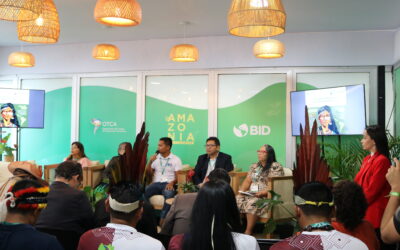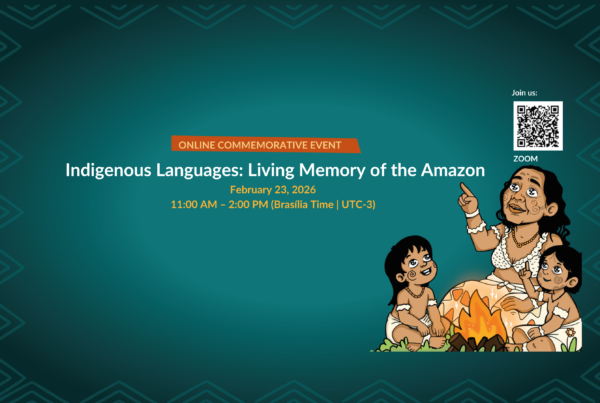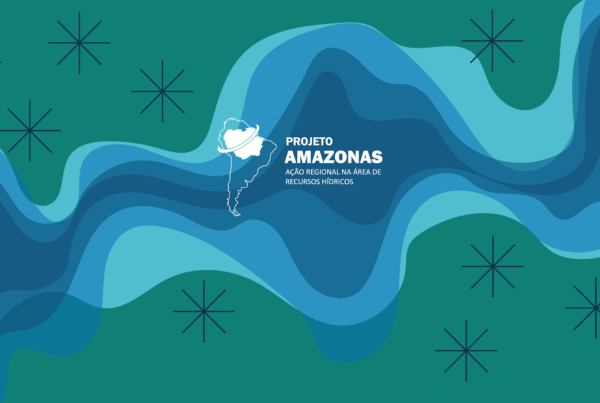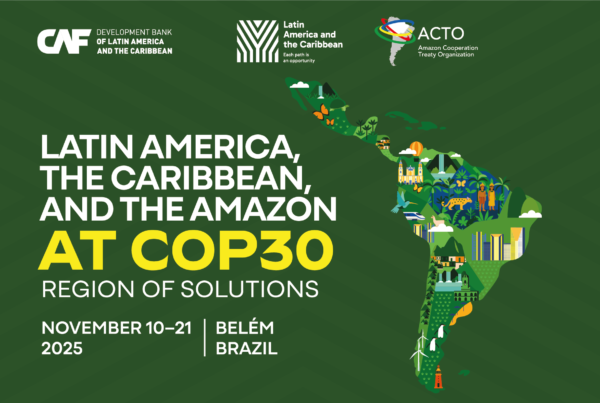Cali, Colombia, October 23, 2024 – As part of the 16th Conference of the Parties of the Convention on Biological Diversity (COP 16), a key side event focused on the creation of the Amazon Indigenous Peoples’ Mechanism took place. This initiative aimed to strengthen dialogue between governments and Indigenous Peoples of the Amazon Basin for the joint management of biodiversity and natural resources.
The event, organized by the Amazon Cooperation Treaty Organization (OTCA) with support from EU-funded Amazonia+, brought together representatives from Indigenous Peoples, Amazonian governments, and international organizations. Discussions centered on the challenges involved in forming a working group to establish three key instances: the Amazon Indigenous Peoples’ Mechanism, the Indigenous Knowledge Forum, and the Amazon Indigenous Peoples’ Regional Platform on Climate Change.
Freddy Mamani, Indigenous Affairs Coordinator of OTCA, highlighted the importance of ensuring full and effective participation of Indigenous Peoples in multilateral biodiversity and climate change spaces. Mamani emphasized the need to build a broad mechanism addressing all topics of Indigenous interest inclusively and participatively, stressing that this mechanism is essential to safeguard collective rights and preserve the Amazon.
Myrna Cunningham, Vice President of the Fund for the Development of Indigenous Peoples of Latin America and the Caribbean (FILAC), stressed the urgency for the new mechanism to be permanent and ensure the full participation of Indigenous Peoples in decision-making. She also emphasized the importance of including women, youth, and those with ancestral knowledge in these spaces.
A Path Toward Effective Indigenous Participation
The event also served to present and discuss the resolution adopted at the Belém Summit, which establishes the Amazon Indigenous Peoples’ Mechanism. This resolution, the result of an extensive consultation process, seeks to strengthen government-Indigenous dialogue on issues related to the Amazon. Indigenous representatives stressed that the mechanism must be an effective tool for defending their collective and territorial rights.
Indigenous leaders from various countries shared their perspectives on the challenges they face, such as territorial governance, incorporating ancestral knowledge, and the need for direct funding for Indigenous Peoples. “Indigenous territories must return to their rightful owners to ensure biodiversity and the survival of our cultures,” stated an Indigenous representative from Ecuador.
Challenges and Future Expectations
Forming the working group and defining the structure of the Mechanism are emerging as the initial major challenges. Key concerns include ensuring that the Mechanism operates with active participation from both governments and Indigenous Peoples. Additionally, the need for sufficient funding to enable the established bodies to function effectively was discussed.
The event highlighted that OTCA member countries and Indigenous Peoples’ organizations would continue to work together to consolidate the three instances: Mechanism, Forum, and Platform. It is expected that concrete progress on this joint effort will be presented at the upcoming COP30 on climate change, scheduled for 2025 in Belém, Brazil.
Finally, the importance of establishing a Subsidiary Body for Article 8(j) of the Convention was noted, recognizing the rights of “Indigenous and local communities” over “knowledge, innovations, and practices that embody traditional lifestyles relevant to the conservation and sustainable use of biological diversity” and to participate more widely in their application and the benefits derived from them.



